|
Getting your Trinity Audio player ready...
|
It’s the finale of the Philippine Blockchain Week (PBW) 2023, with yet another full lineup of discussions highlighting the adoption pace of the Southeast Asian country on blockchain, AI, Web3, and more.
Getting past the title of the world’s text and social media capital, thought leaders in the Web3 and blockchain space are setting up the tone to make the Philippines a leading blockchain hub. Insights on the plans for achieving this goal were made apparent during the PBW 2023’s third day as speakers worldwide seek to look out on the country’s standpoint in blockchain adoption.
Play-to-earn gaming is one of the most popular use cases for blockchain. Hence, leaders in the gaming world were also present to navigate the gaming industry and level up the status of the gaming community in the country.
Check out this final recap story on the events that took place during PBW 2023’s finale.
Free trade in the port of Bataan
Since his inauguration as the 17th president of the Republic of the Philippines, President “Bongbong” Marcos Jr. has been pushing for the country’s digitalization. And the province most invested in blockchain and the adoption of emerging technologies would be Bataan. Since the creation of the Authority of the Freeport of Bataan (AFAB)—a place for trading business mainly for export processing—the province has been a primary source of business transactions.
On Day 3 of the PBW 2023, three entrepreneurs and thought leaders from the Philippines, Japan, and Korea held a discussion on the free trade zone. Ton Patron, a fintech expert and general manager at SurgePay, started the panel discussion by asking a challenging question about the competitive edge of law in pioneering and promoting blockchain.
Impero Group’s Emmanuel “Noel” Samson says that AFAB’s competitive advantage over other jurisdictions is it’s inclined in a law under Republic Act no. 11453. The Impero group CEO and co-founder explains that in the AFAB jurisdiction, crimes in “crypto” are not allowed.
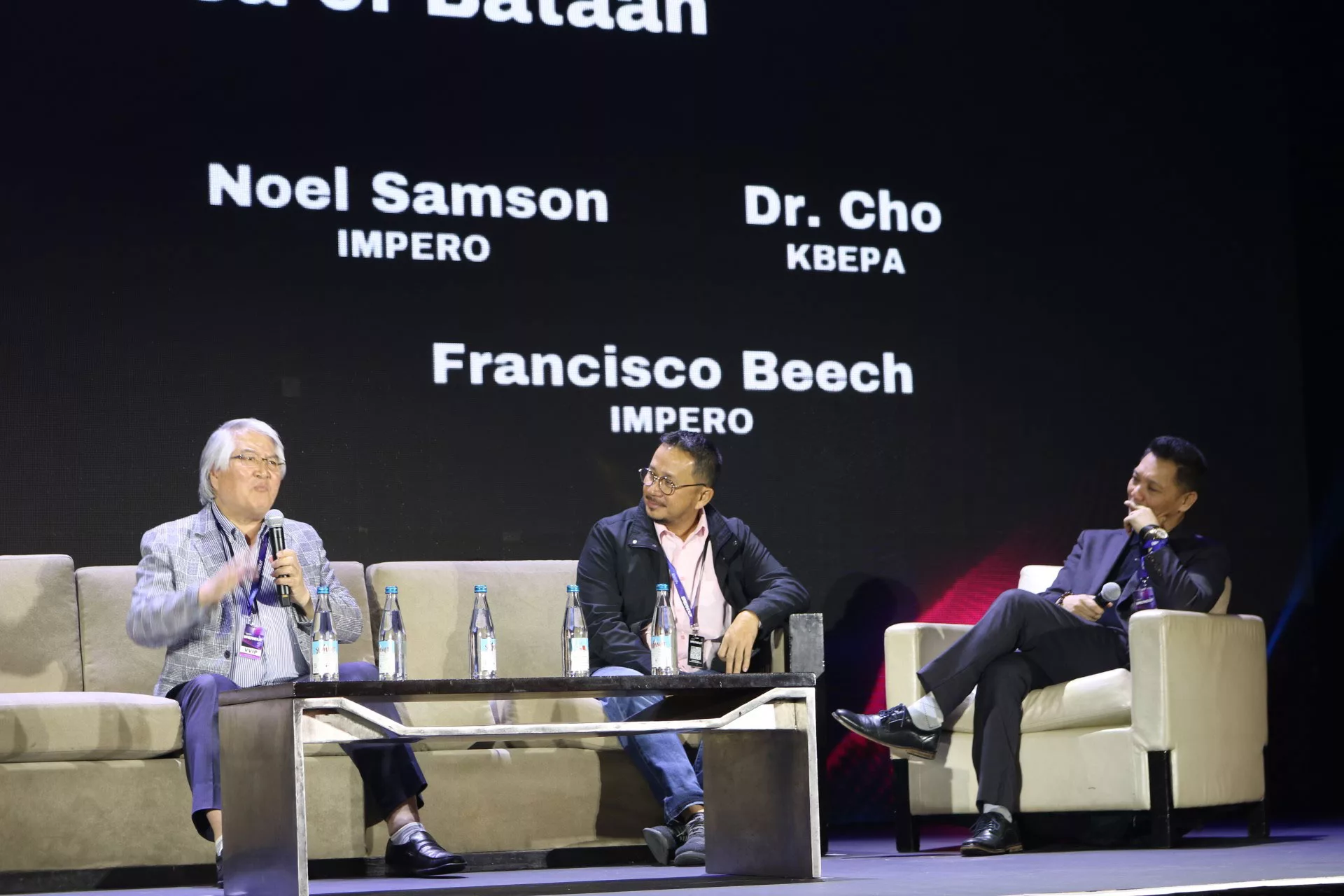
“With this law, [the AFAB] allows to do what others jurisdiction can’t do,” he notes. “They want to let people know that this is an ecosystem where bad actors are not allowed because we deal with processes that allow only the true blockchain users that want to empower the decentralized community.”
Adding to the conversation, Dr. Cho of KBEPA shares that with blockchain, everything is transparent due to the technology’s immutable feature. At the same time, Francisco Beech, President of the Impero Japan team, sees that the East Asian country businesses would be streamed properly in AFAB.
Wrapping up the panel, Samson thinks that the Philippines is in an excellent position with the RA 11453 law, “We want an ecosystem of good actors. We want an ecosystem where everyone is valued. We want the full integrity of this ecosystem to always be there as we want to champion the Philippines as a country that brings in blockchain and AI.”
Blockchain is gender agnostic—everyone must be included
Fast forward to the afternoon sessions of PBW 2023, featuring a panel discussion with nChain’s Stephanie Tower on “Wealth in Web3.”
The nChain’s business development lead in the Philippines was joined by Yashika Khater, a crypto content creator at NAS Academy, and Joel Barretto, Principal Cross-Border Wealth Manager at Abacus Wealth International, for the panel moderated by Naama Poznia, founder and CEO of LetzGetPhygital.
The session centered on the inclusivity of women in male-dominated industries such as the blockchain and how they can find balance and step up to make some changes in the space.
“This is happening, and this is a discussion that needs to be encouraged in every industry and government,” Tower began the panel discussion.
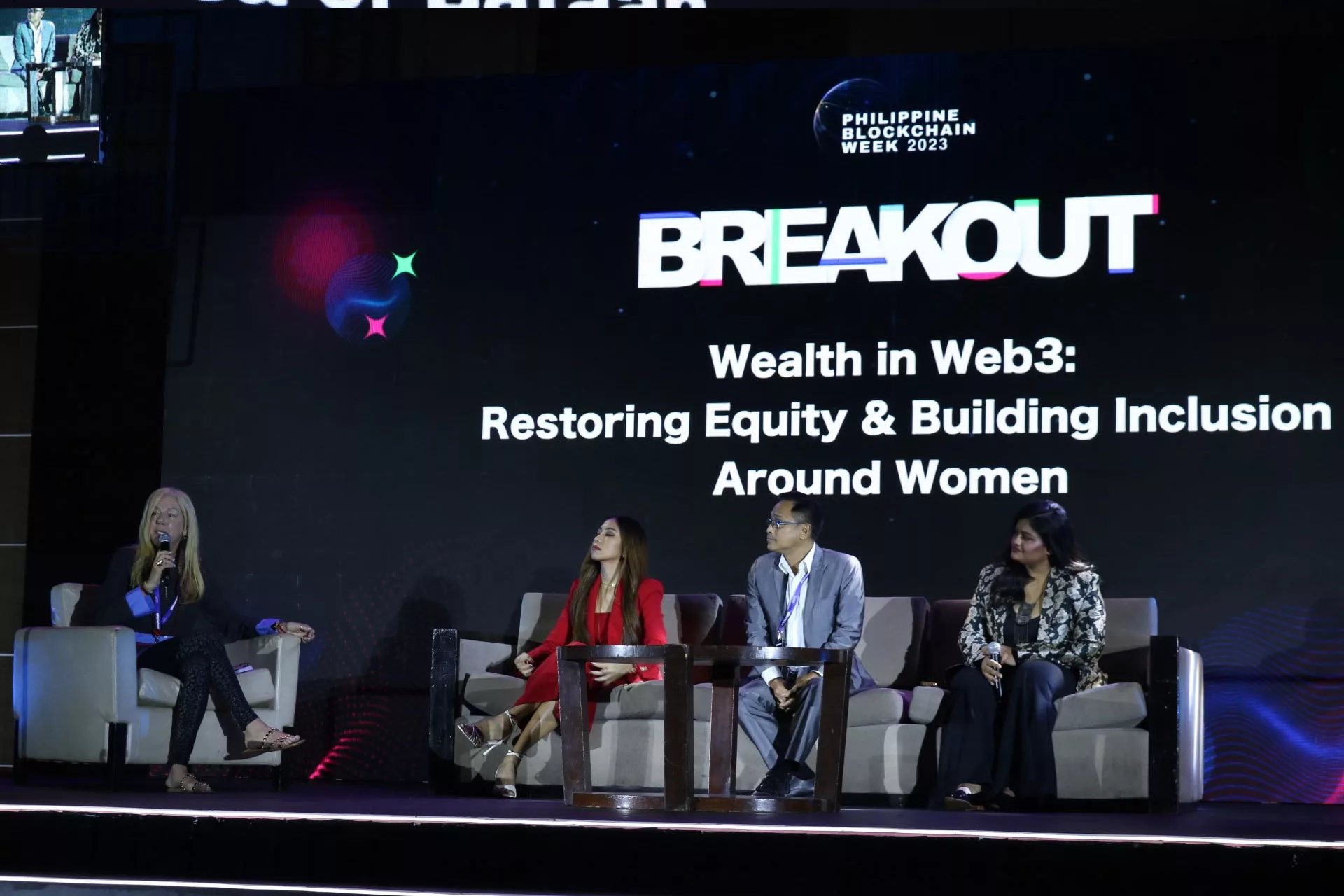
Khater says that in India, their culture tends to respect women because of the respect they give to their goddesses. However, she still sees the obvious that women tend to be more conservative, especially when diving into emerging technologies and investing in them.
“I want to tell the women to become bolder and take risks to invest,” she states.
Tower disagrees with this as she sees that the women in the space have been moving forward in taking roles in the technology space or investing. Tower sees that the sad reality is that not enough leadership positions were given to women in tech.
The role of startups and content creation in the budding Web3 space
Striking a balance to the heavy topics on equity and women’s inclusion, another key talk on passion and content creation was discussed on the afternoon of PBW Day 3.
Here, social media personality and dancer Ranz Kyle, director and producer behind the YouTube channel PaperbugTV Jako De Leon, CEO of Rawbots Neil Haran and Gala Games Chief Marketing Officer Jason Brink discuss the influence of content creation in the Web3 space and how it would grow for the next five years.

“One of the profound, powerful things around social media is the fact that you can build these types of networks. You can take your passion and provide inspiration to change the lives of people,” Brink, who moderated the panel, states.
Delving right into the development of content creation in the Web3 space for the next five years, Ranz and De Leon believe that their industry would take on a massive role in educating the masses about emerging tech and helping people realize their potential.
As for the startup ecosystem, Block Dojo Philippines—an incubator program newly launched in the Philippines—was promoted by its managing director, Kristoffer Briones. In a short yet lively keynote presentation, Briones encourages the new players in the blockchain space to sign up for their 12-week incubator program and “make their vision turn out to reality.”
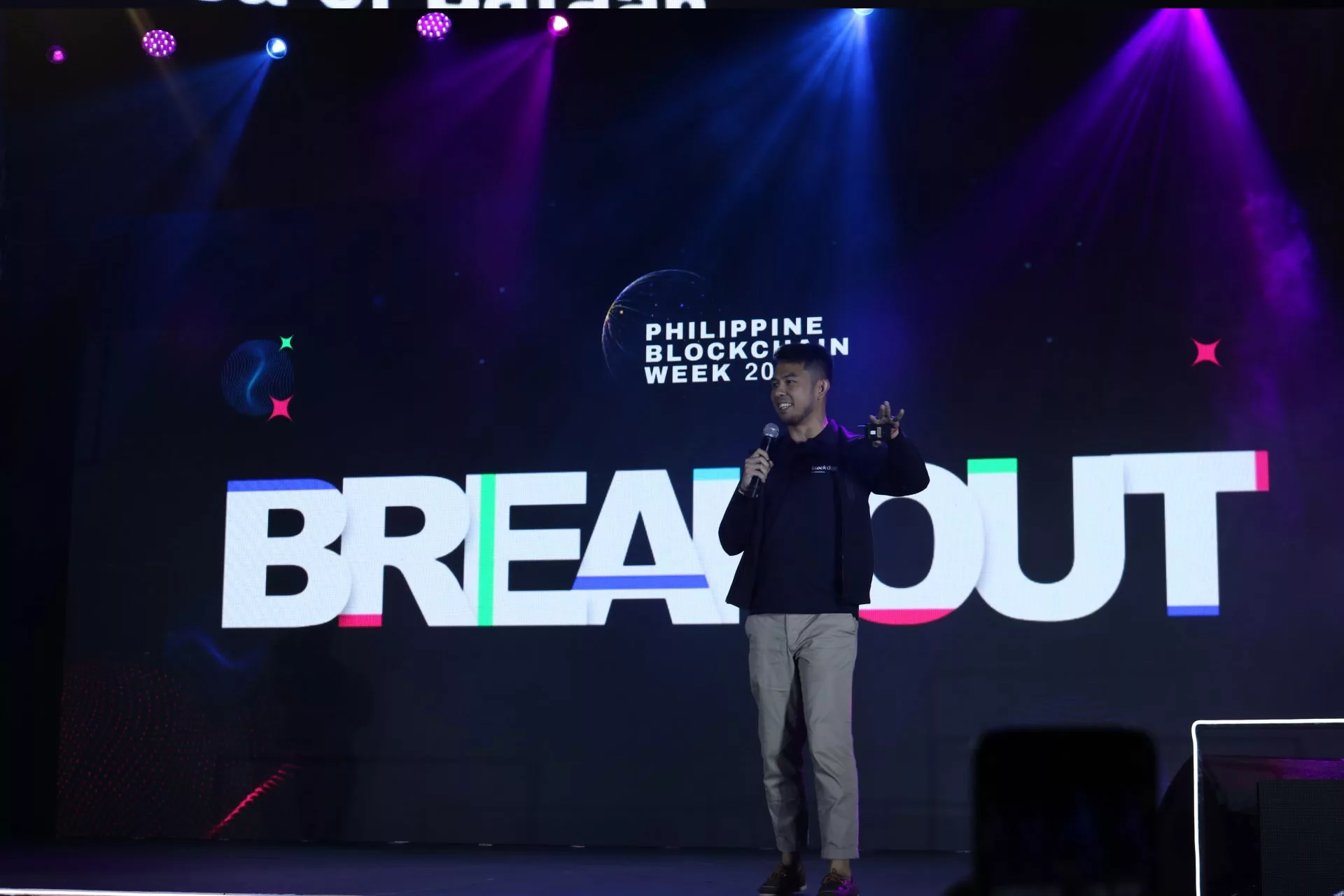
The metaverse as we see it
The third day of the PBW delivered great discourse about the basics of the metaverse and what the future could look like when the physical and virtual worlds collide.
The metaverse is often seen as a digital version of the world we’re living in that is fueled by emerging technologies, such as artificial intelligence (AI) and the Internet of Things (IoT). But the metaverse works beyond this, offering use cases that have yet to be realized by the greater majority.
For Yaeunda Pou Williams, a trailblazer in the emerging tech sector, the metaverse is a “virtual, digital ecosystem” that brings people together to create a community, which she claimed is the primary use case of the technology.
Building on Williams’ statement, the Head of Singapore at The Sandbox, George Wong, said the metaverse is a space where digital ownership takes place. However, it’s still in its early stages, and people have yet to realize its full potential.
“We have to touch the surface of what the technology can do, and I think many of the new technologies like AI…is actually gonna enhance the metaverse experience,” he said.
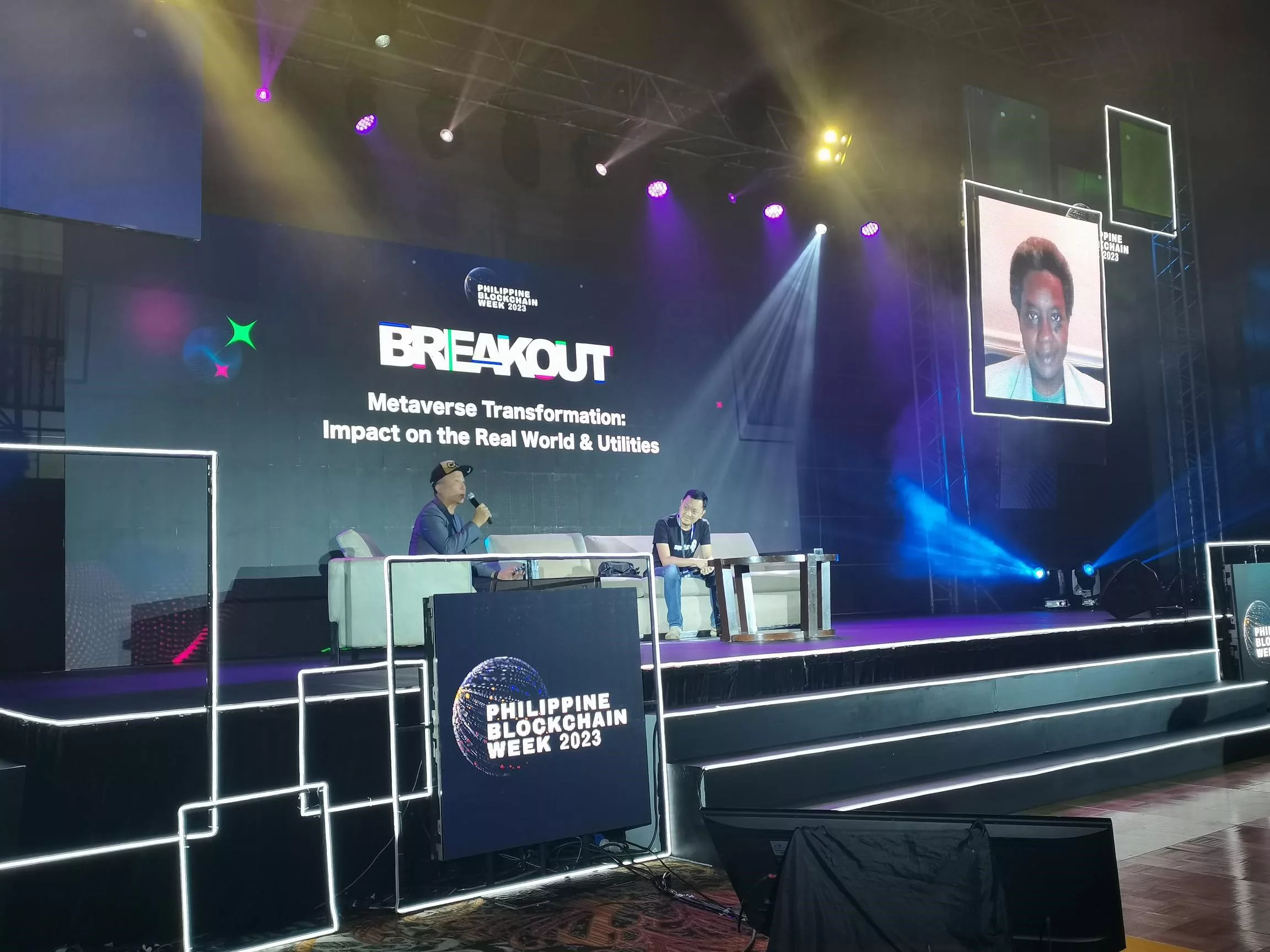
But Wong emphasized that to fully explore the utilities of the metaverse, educating the public is extremely important. However, he noted that education should be beyond the basics of the technology and must involve its potential use cases in different areas, such as fashion and music.
Furthermore, he said people should stop seeing the metaverse as a standalone technology.
“There’s actually different designs of metaverses, different functionalities,” he stressed, adding that these will be enhanced by other emerging technologies.
Businesses and enterprises have a critical role to play in ensuring that the metaverse would have a real-world impact, Williams chimed in, further explaining that the best way to make people understand the technology is by letting them experience it first-hand.
Concluding the short discussion on the metaverse, Wong encouraged PBW participants to explore the technology, not because it is a trend but rather the future, to which Williams agreed but emphasized the need to explore it with caution.
Diving into the realm of gaming
Jumping from the metaverse to the realm of gaming, game experts unite to discuss the gradual transition of the community from Web2 to Web3, the challenges that lie ahead, and the current state of the video gaming sector.
At a panel discussion, OP Games CFO Richard Laig came in for the first kill by saying that while many see play-to-earn (P2E) games as the future of gaming, nobody could hide that it is “already dead.”
“The reason is that it’s economically unsustainable,” said Laig, citing what happened to the popular P2E game Axie Infinity.
While many see the Ronin Bridge hack as the reason for Axie Infinity’s downfall, Laig said the main issue is the hyperinflation of tokens.
“Essentially, the creator of the SLP token realized that any model wherein you can have any number of players driving for any number of tokens day in and day out essentially will lead to hyperinflation,” he said, pertaining to the Smooth Love Potion, Axie’s in-game currency used to breed pocket monsters.
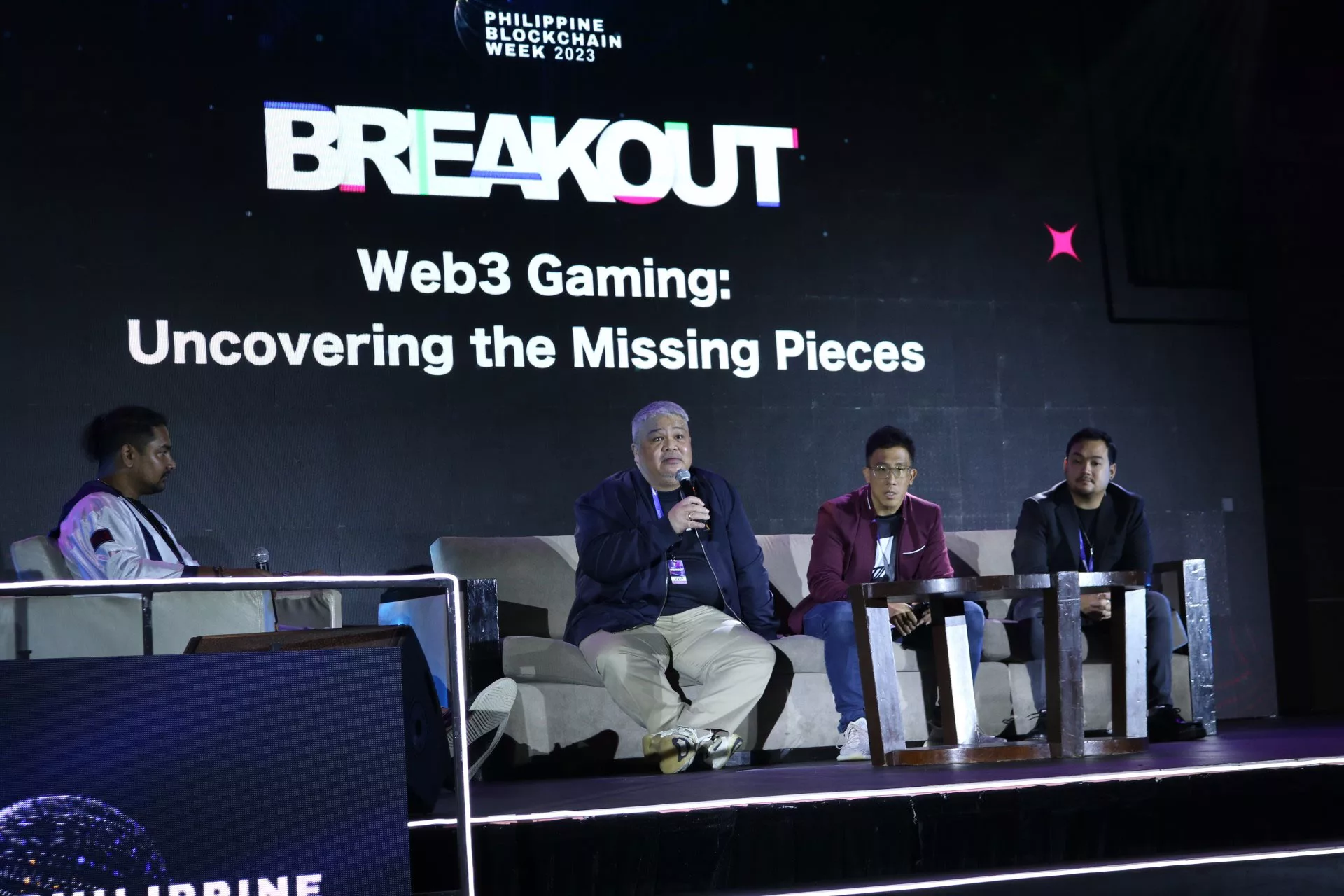
Currently, Laig said the Web3 market is still on the lookout for appropriate monetization for the emerging sector.
While Web3 games have the potential to attract players worldwide, considering that it is powered by the most advanced technologies available in the market, it is slow to become mainstream.
Co-founder and CEO of Mana Games Joe Tran said that unlike Web2 gaming, Web3 games focused more on tokenomics and less on the fun its former offers.
Despite its rather slow adoption, the Philippines, with its active gaming community, has massive potential to become the leader in the sector.
For Laig, the Filipino youths’ deep understanding of the model of games being released in Web3 contributes to the gradual mass adoption of the technology.
Meanwhile, Avium CEO Nathaniel Lim noted that what gives the Philippines the edge in gaming as a whole is its vibrancy, creativity, and hunger for innovation.
The final day of the Philippine Blockchain Week ended with a free concert from Ppop idol G22 and the first decentralized South Korean KPOP idol tripleS.
Watch: Bataan gov’t & nChain are aiming to bring the Philippines to its golden digital age

 02-28-2026
02-28-2026 




